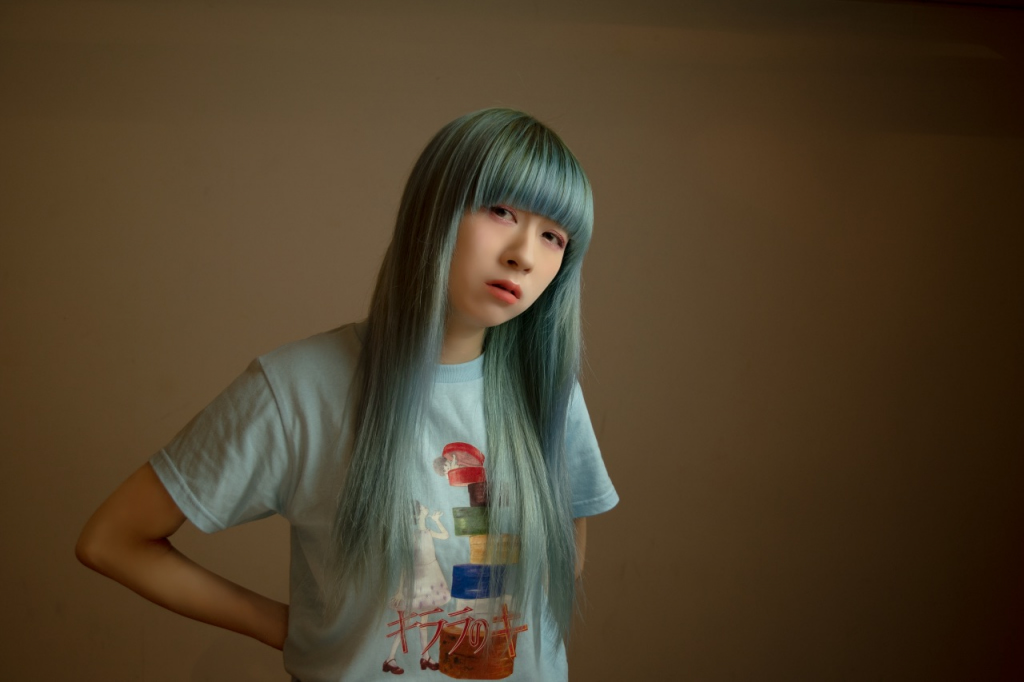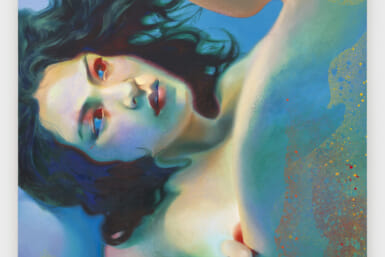September was a month of exceptional Japanese electronic music. MicroM’s “Hotel Without a Name” diced art pop with bits of electro and IDM; Mimi Mirai released their debut, the patient, jump-up festival hit “Lost In Kyoto”; while there was frightening resonance in Noiseconcrete and 3CHI5’s two new tunes, which aren’t as heavy as they might first seem (I promise). All were driven by overtly electronic textures and beats or influenced by electronic dance music.
And joining all that were some intriguing remixes of tracks and albums I’ve previously featured in ‘Ed’s Picks’ – namely Dos Monos’ cleverly self-referential and reliably anarchic “Remixed Remixes of The Rite of the Spring Monkey” and Tofubeat’s chilled remix of Mitsume’s “Tonic Love”, which makes full use of those bells that captured most of my attention in August.
1. Macaroom, ‘Hong Kong’
(Kiishi Bros)
Macaroom’s “Hong Kong” typifies the best of indietronica, a genre that thrives in blurring the lines between synthesized and live instrumentation. Opening with Emaru’s faint, pensive vocals, a line of soft piano and the odd ray of dazzling, warped flits, it gathers momentum with huge horns, grunting chants and tumbling layers of dazzlingly futuristic synths.
Asahi, the composer behind Macaroom, conjures real, throbbing weight with “Hong Kong” – but he also achieves so much that often features in prime indietronica. With its urbanity and nature, cold modernity with sepia comfort, “Hong Kong” adds mechanization to flittering acoustics and reels-in shards of electronica with tropes of old-school New Age. Those juxtapositions also seep into Emaru’s lyrics: together the duo astutely capture folktronica’s contrasts, contradictions and, ultimately, its genius, too.
2. Roth Bart Baron, ‘Never Forget’
(SSNW)
Upon first hearing “Never Forget”, one wouldn’t necessarily deem Roth Bart Baron an indie folk band. Most obviously, the track is filled-out with dense and swarming waves of whistling atmosphere. It seems build out of dramatic manipulation, caused not by folky naturality but toying with nobs in a production booth or flicking around on a laptop.
Yet indie folk is the genre in which Masaya Mifune, RBB’s songwriter and prime performer, categorizes himself and, on deeper listening, one begins to see why. Among the sweeps of atmosphere is a lot of (well-constructed) instrumentation. “Never Forget” has chirping flutes, occasion-building high-hats and horns that, once one isolates them, have the power of a chamber folk record.
It’s elegant and dramatic but also dismisses my narrow prior preconceptions of indie folk. Such mind-broadening music doesn’t come around very often: Mifune takes advantage of the genre’s undefined boundaries and carves his own definition in the process.
3. Perfume, ‘Time Warp’
(Universal)
“Time Warp,” Perfume’s first single since 2018, intends to celebrate two anniversaries. It’s 20 years since the group began and 15 since they signed to a major label. For one of the most iconic J-pop acts of the 21st century so far, needless to say, both occasions are worth celebrating.
More importantly, however, “Time Warp” is Perfume’s best single in almost a decade. Fizzing with the energy of its lead synth riff, the bass pumps every beat while distorted guitar and reverberant bass fuel the pop machine.
Producer and songwriter Yasutaka Nakata has really got this one right: not only is “Time Warp” excellent but it doesn’t dilute the brand of electropop that made Perfume so revered. Even after the distraction of other projects (notably Kyary Pamyu Pamyu and CY8ER), Nakata focuses on precisely what defines a Perfume track. “Time Warp” is as colorful, mechanistic and hypermodern as anything from the Game or Triangle era: a successful update worthy of an iconic group.
4. Uami, ‘REM’ & ‘Sand Storm’
(JVCKENWOOD Victor / Self-released)
As with both Macaroom and Roth Bart Baron, Uami evades easy classification. On last month’s collaborative Avissiniyon record, I didn’t know how to categorize her – and still don’t. Both “REM” and “Sand Storm” (only two of her tracks released in September) combine acoustics with digital magic in a manner that I haven’t really heard elsewhere.
“REM” is more electronic, a marvelously detailed work of ethereality pierced by Uami’s distant vocals. “Sand Storm”, meanwhile, momentarily twinkles before being filled-in by a distinctive sort of retro synth style and bits of rougher, textured sounds. Both songs are technologically virtuosic and unsettlingly quaint.
In fact, Uami’s music sounds otherworldly, like it’s the remnants of records found in some isolated cavern of a far-flung planet. It’s enchanting and utterly fascinating.
5. Sho Okamoto, ‘LOOP (feat. AAAMYYY)’
(Sony)
The final track here breaks with the electronic theme. “Loop” isn’t overly modern or experimental but a simple duet. Sho Okamoto, the vocalist and guitarist of pop rock quartet Okamoto’s, wrote “Loop” with AAAMYYY, an electronic musician and member of psychedelic pop group Tempalay.
Given their backgrounds in brasher, more direct styles, the pleasure of “Loop” is surprisingly gradual. Almost three minutes of it pass with only Sho, AAAMYYY and a lone acoustic guitar. Even once the wider instrumentation has spilled-out, the phases of soft drumming, tingling guitar and AAAMYYY’s chanting are unforced.
“Loop” doesn’t need all the above tracks’ bells and whistles. It succeeds in focusing on the basics: a plush and subtle reminder that, behind their usual energy, both of these artists are excellent songwriters.









